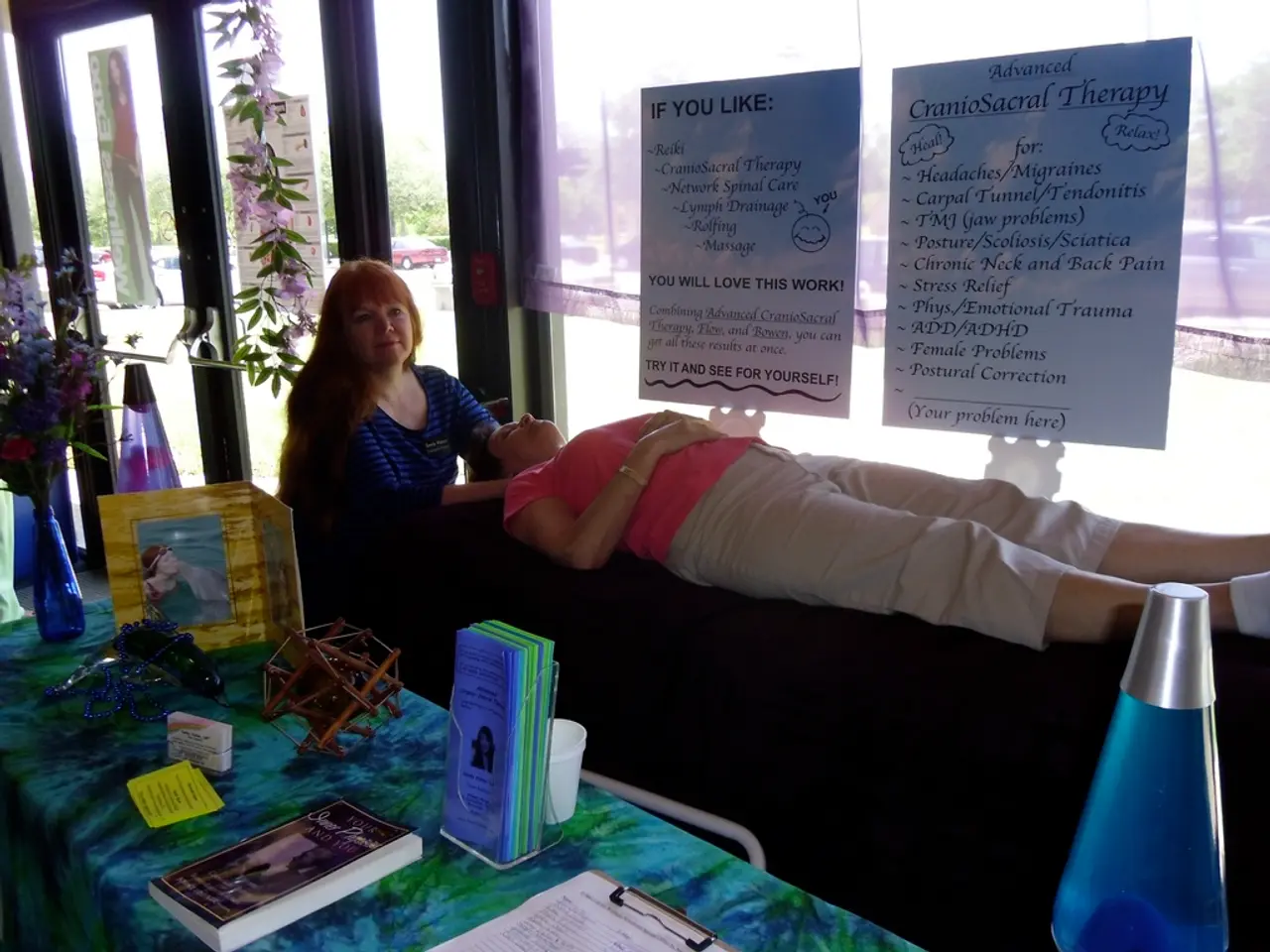Refueling Your Mental Health: Crucial Steps to Recharge Your Emotional Reservoir
Depression is a complex mental health condition that affects millions worldwide. One way to alleviate its symptoms is through medication, often prescribed by a psychiatrist. However, seeking professional help from therapists, psychologists, or psychiatrists is crucial for effective treatment and management.
In the journey towards recovery, practical tips for managing depression can be invaluable. These evidence-based strategies and self-care approaches aim to provide a holistic approach to mental health.
Practical Tips for Managing Depression
- Behavioral Activation: By creating a daily routine with small, manageable activities, such as getting out of bed at a set time, stretching, or taking a brief walk, individuals can break the cycle of inactivity common with depression.
- Cognitive Diffusion: Learning to separate oneself from negative thoughts by recognizing that thoughts are not facts can reduce their emotional impact and improve mood regulation.
- Physical Activity: Regular movement—even light exercise like walking or stretching—can help regulate the nervous system and reduce depressive symptoms.
- Sleep and Nutrition: Ensuring sufficient sleep and maintaining a balanced diet rich in fruits, vegetables, lean proteins, and micronutrients like vitamin B6, vitamin D, and magnesium supports mental health.
- Setting Realistic Goals: Breaking down overwhelming tasks into small achievable steps can improve productivity and emotional satisfaction.
- Avoid Ineffective Coping: Self-isolation, excessive alcohol use, oversleeping, or rumination should be avoided, as these behaviors tend to worsen depression over time.
The Role of Self-Care in Mental Health
Self-care extends beyond relaxation. It involves emotional, physical, and professional dimensions that sustain overall well-being and resilience.
- Emotional Self-Care: Practices such as journaling, seeking therapy, and debriefing with trusted peers or supervisors help process emotions and reduce stress.
Regular self-care can prevent burnout and compassion fatigue, especially in high-stress roles like nursing, but applicable broadly to maintain mental health.
Professional support (therapy or counseling) is an essential self-care component when dealing with depression, providing a safe space to explore emotions and develop coping mechanisms.
For more detailed tips and resources, visiting specialized mental health websites or consulting professionals can provide personalized support and guidance.
In summary, combining behavioral strategies, physical health maintenance, emotional processing, and professional help constitutes an effective approach to managing depression and promoting mental health through self-care.
Remember, taking care of oneself is not selfish; it is necessary for our well-being. Talking about mental health with loved ones can be challenging, but it is important to have open and honest conversations to receive support.
When discussing mental health with friends and family, choosing a comfortable setting and time, being prepared to explain feelings and experiences, and providing resources to help loved ones understand mental health are helpful. Addressing any potential stigma or misconceptions they may have and emphasizing the importance of their support are important when discussing mental health with loved ones.
Coping strategies such as mindfulness, physical activity, journaling, seeking support from loved ones or support groups, and engaging in creative outlets like art or music are essential for managing depression and improving overall well-being.
- Science and mental health are closely intertwined, as evidence-based strategies like behavioral activation, cognitive diffusion, exercise, proper sleep, nutrition, and goal setting can all aid in managing depression.
- Health-and-wellness encompasses a holistic approach to mental health, with practical tips for managing depression extending into various aspects, including emotional self-care through therapy, journaling, and support from loved ones.




